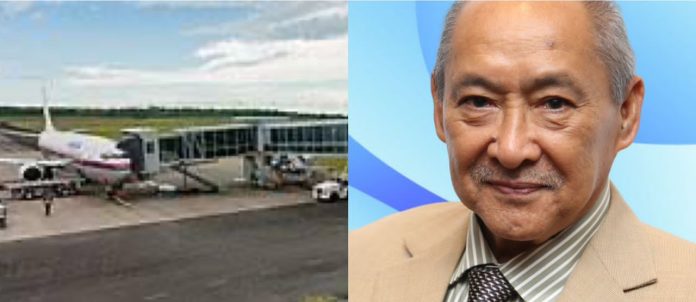KOTA KINABALU: The planned RM130 million upgrades of Tawau Airport to international standards, coupled with the relocation of Indonesia’s capital to Nusantara, is poised to present a unique opportunity for synergistic growth and development in the region.
Exploring the potential advantages and importance of these developments, Ts Dr. Hj Ramli Amir, the former president of the Chartered Institute of Logistics and Transport (CILT) Malaysia, said the project to upgrade Tawau Airport, which is set to begin in early 2025, will significantly enhance its capacity and facilities.
He said these include the expansion of the terminal building from 15,800 sq m to 23,500 sq m, an increase in check-in counters from 12 to 20, full air-conditioning throughout the terminal, as well as enhancing signage and multilingual staff deployment.
In 2023, Tawau Airport handled 1.71 million passengers, exceeding its original capacity of 1.5 million, making it the 8th busiest airport in the country, he told the Jesselton Times here today.
He said the airport currently handles 115 flights per week, with a capacity of 20,200 seats.
Commenting on the potential in tourism and economic growth, Ramli opined that Tawau Airport serves as a vital gateway to popular tourist destinations like Semporna and Sipadan Island.
“The upgrade will enable the accommodation of more international flights, particularly from China,” he said.
Ramli said between January and June 2024, there were 32 chartered direct flights from China to Taiwan, including 20 from Nanjing and 12 from Guangzhou.
“Flights also connect Tawau directly to Macau, Guangzhou, Chengdu, and Nanjing.
“The airport currently handles 115 flights per week, with a capacity of 20,200 seats, including 58 flights to and from Kuala Lumpur,” he added.
According to him, in the medium term, “we can expect a potential 10-15% annual growth rate in passenger numbers, reaching 2.2-2.3 million by 2028.”.
Ramli expressed confidence that the number of international flights, particularly from China, could potentially double or triple in the next 3-5 years.
“Tourist arrivals to nearby destinations could increase by 30-40% over the next 5 years. With the upgrade increasing capacity from 1.5 million to 2.5 million passengers annually, we can expect passenger numbers to grow steadily towards this new capacity,” he added.
In addition, he said the expansion will support significant growth in cargo handling, where cargo movement increased from 4,000 metric tonnes in 2019 to 13,000 metric tonnes in 2023.
The cargo handled is mostly fresh products, particularly seafood, he said.
“Looking ahead, a projected 15-20% annual growth rate could see cargo handling reach 25,000-30,000 metric tonnes by 2028.
“This growth could open up new opportunities for local businesses, particularly in exporting fresh products,” he said.
The relocation of Indonesia’s capital to Nusantara in East Kalimantan, Ramli said, presents additional opportunities for
Cross-border Economic Cooperation:
“Tawau Airport could serve as an important transit point for business travellers and investors heading to the new Indonesian capital.
“The development of Nusantara is likely to attract international attention. Tawau, with its upgraded airport, could position itself as a convenient entry point for tourists exploring both Malaysian Borneo and the new Indonesian capital,” he said.
He said the massive infrastructure investments in Nusantara, estimated at $35 billion, could have spillover effects on nearby regions, including Tawau.
“Both the Tawau Airport upgrade and Nusantara’s development emphasise sustainability, potentially leading to collaborative efforts in environmental conservation and sustainable tourism initiatives in Borneo.
“In terms of cultural exchange, the increased connectivity could facilitate greater cultural exchange between Sabah and East Kalimantan, enriching the tourism offerings of both regions,” he said.
Ramli said the RM130 million upgrade of Tawau Airport, when considered alongside the development of Nusantara, represents a significant opportunity for regional growth.
He said the projected increases in passenger numbers, cargo handling, and international flights underscore the potential for Tawau to become a key player in the economic and tourism landscape of Borneo.
“These developments have the potential to not only benefit Sabah but also contribute to the broader economic integration of the Indonesia-Malaysia-Philippines Growth Triangle (BIMP-EAGA), positioning Tawau as a crucial hub in this evolving regional dynamic,” he added.


